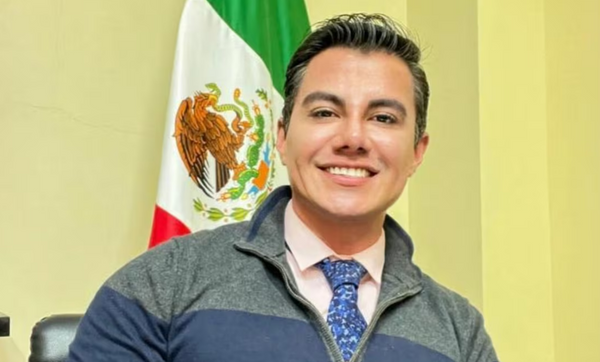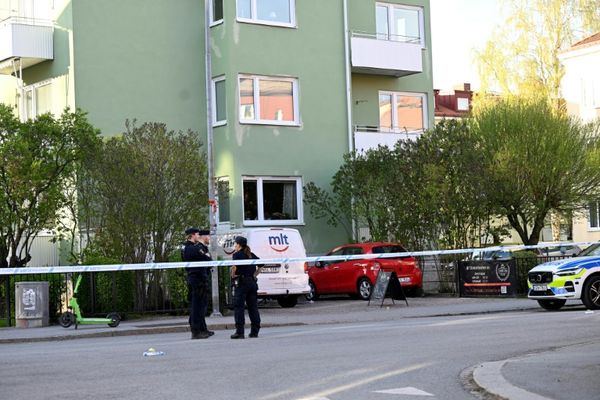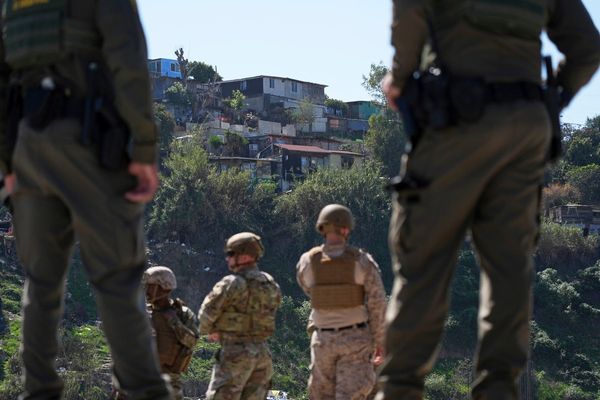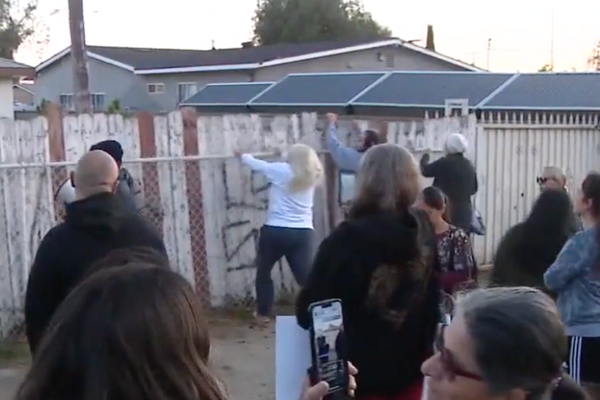
One man wants to write an informed column on his experiences of being arrested dozens of times when protesting during the civil rights movement in segregated Chicago.
Another writer bags a profile on the author of a celebrated book into the psychological impact of slavery. And a woman originally from New Orleans talks about using genealogical records to discover she is descended from slaves owned by Jesuit priests.
The meeting for contributors to the upcoming issue of the Black Lens is not short of ideas. Rather, it’s brimming over, proof acting editor Natasha Hill said, of the need for a newspaper unabashedly established to address the interests and nuance of the Black community of Spokane, Washington.
“Many of our interests overlap. We’re all part of the mainstream [media],” she said. “But our perspectives are different. So to [the] point of who’s telling those stories, that’s where it’s so important where we get that gender and race equity so we can hear from all kinds of folks.”
The Black Lens was founded in 2015 by community activist Sandy Williams, who charmed and cajoled people to provide stories or interviews as she produced it from a spare room in her parents’ home.
When she was among 10 people killed in a plane crash in the Puget Sound in September 2022, along with her partner, Patricia Hicks, there was intense grief. There was also anxiety about what would happen to the newspaper to which she had provided a life force.
Williams’s family, several foundations, local businesses, and some journalists from the Spokesman-Review, Spokane’s daily newspaper, have created a non-profit for a project of revival of the Black Lens.
Under this model, the community paper will be printed and distributed once a month in the Spokesman-Review. There is money for journalists, and it has its own website. The city’s Gonzaga University plans to provide office space.
***
What feels like a striking success story in Spokane comes as local media across the US decline. A 2023 study by Northwestern University found the nation had lost one-third of its newspapers and two-thirds of newspaper journalists since 2005. The report estimated at some point this year as many as 3,000 newspapers will have shuttered in just two decades, and 204 US counties will have no local news outlet.
By 2023, two and a half newspapers were closing every week. Experts say Black media may be more vulnerable to economic fluctuations.
Hill, who plans to step down as the Black Lens’ editor to launch a campaign run for Washington’s state legislature, believes the model they are testing could be replicated.
“Hopefully it’s a beacon of hope that if Spokane can launch an independent Black newspaper that’s well funded, there’s a model that can work,” she said.
Rob Curley, 53, says he and others from the Spokesman-Review have helped with their spare time and skills.
He’s helped write grants and raised close to $1m for a series of journalism projects over the past few years. A little under $100,000 was collected for the Black Lens.
He defends his own paper’s record of reporting on the Black community, pointing to the securing of money to hire a race and equity reporter that would write for both the Spokesman-Review and the Black Lens, though he said: “We could always do better.”
He spoke at Williams’s funeral: “I said, ‘I don’t know what to say but I know what we’re not supposed to do. We’re not supposed to let the Black Lens die.’”
***
Though Spokane was the first city in Washington state to elect a Black mayor (James Chase in 1981), it has a small African American population, just 2.6% according to the 2023 census. This compares to 4.6% for the state as a whole and 14.6% nationally.
The city, along with eastern Washington and northern Idaho, has often attracted white supremacists. The Aryan Nations, a Neo-nazi group established in the 1970s, for years had its base in Hayden Lake, 40 miles east of Spokane.
From 2009 to 2021, Matt Shea, a white supremacist, represented Spokane as a Republican in the legislature, and was only ousted when an internal investigation concluded he had engaged in terrorism and was plotting a “holy war”.
Spokane, which has a population of 230,000, is 280 miles east of Seattle. Politically, it is a purple patch in a red part of the US. In 2020, Donald Trump carried Spokane county 50-45 over Joe Biden.
The city’s African American population is spread out geographically, and the Black Lens often works as a glue weaving communities together through storytelling.
***
Spokane has a long if interrupted history of Black community newspapers – the Citizen, which ran from 1908-13; the Voice of the West; the Spokane Star, which was published in the 1940s; and the Black Shoppers Guide, which ran in the 1960s.
Between 1995 and 2000, Robert Lloyd, 80, and his wife, Diane, 76, published the African American Voice. Like the Black Lens, it was a monthly publication.
As a young man, Lloyd was an organizer for the Southern Christian Leadership Conference and says he met Dr Martin Luther King. For 30 years he taught photography at Eastern Washington University.
He says he is happy about the revival of the Black Lens but wants it to retain its activism.
“How do we get the Spokesman-Review, the commercial paper, in with an advocacy paper?” he asked.
He says he also tells “Black naysayers or cynics” they have a chance to be read by the 60,000 people who subscribe to the local paper. The Black Lens previously never printed more than 1,000 copies.
“Don’t miss the opportunity to get your story out to the world,” Lloyd said.
One thing there is agreement on is the need for a paper that speaks for the Black community.
In a 2021 report by the Black Media Initiative, conducted in the aftermath of the Covid-19 pandemic and protests for racial justice, found Black media publishes six times more coverage than the mainstream, on issues of importance to Black communities, including racism, health disparities and voting access. It also humanizes its subjects, using words such as “son” and “mother” more frequently.
“There are certain topics that need to be addressed that may not make sense in the mainstream area, but that do make sense in certain communities,” said Cheryl Thompson-Morton, who serves as the initiative’s director at the City University of New York journalism school. “There are certain ways different communities will cover a topic that mainstream media may miss because they just are missing that nuance. It’s hard to represent every opinion on that scale.”
***
Jennifer Roseman, 71, grew up in Spokane and later worked as reporter on the Spokesman-Review for 14 years beginning in 1978. Throughout that time, she was the only Black reporter and often felt out of place, she says.
She was an admirer of Williams’ work and hopes the revived paper covers difficult topics and not just “feel-good stories”.
“It’s harder to talk about the issues,” she said. “That’s what I’m going to be looking for – understanding the issues that affect the community, and there are many, and reporting on those things.”
One of the philanthropic groups that has provided major funding to the relaunch is the Inatai Foundation, based in Seattle. More than 80% of the organizations it supports are led by people of color.
President and CEO Nichole June Maher says the foundation was only established six years ago but has learned how important grassroots media is “to the civic infrastructure of our state and to the community”.
Another person involved in its revival is Williams’s daughter, Renika Williams, 36, a freelance graphic designer who lives in New York City.
She says there has never been more of a need for the paper, pointing to incidents such as the racist barracking last month of the University of Utah women’s basketball team in nearby Coeur d’Alene.
She wrote an article for the Black Lens in which she talked about losing her mother, a “radical idealist”, and asking she be remembered not as a one-dimensional hero, but rather someone whose life was not “neat and unblemished”.
Speaking from Brooklyn, she says she wants the paper to be similarly wide in its coverage. Being involved in its revival “lit a fire in me … and changed my trajectory”.
“I’m really sad the only reason I’m associated with any of these things is because she died,” she said. “[But] I feel honored to be part of something that’s really creating positive change in Spokane.”
• This article was amended on 26 May 2024. An earlier version incorrectly stated that Hayden Lake is west of Spokane, Washington; it is east of Spokane.







